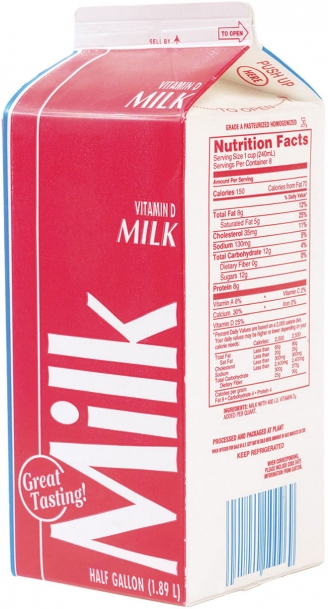The State of GMO Labeling
If you live in America you cannot have escaped the ongoing GMO debate. While many hold the strong opinion that genetically engineered foods are unsafe, unhealthy and downright evil, there are others who believe they are the way to feed an ever-growing world population. This is, after all, America, and it is our right to have divergent points of view. However, over the past few years the public battle over genetically engineered food has become more confusing and contentious, with the biotech seed industry and Big Food on one side of the divide, and the 90% of Americans who want to see GMOs labeled on the other. It could be argued that the “GMO issue“ has become less about the science, and more about the consumers’ right to know what is in our food.
With no federal laws requiring the testing or labeling of genetically engineered foods, American citizens, largely via grassroots efforts, have had to speak up for themselves on this matter. There are currently eight GMOfree zones in the U.S: Trinity, Santa Cruz, Marin, Mendocino and Humboldt counties, all in California; Jackson and Jefferson counties in Oregon, and Maui, Hawaii. The states that have passed mandatory labeling laws are Connecticut, Maine and Vermont. Alaska has required labeling of any genetically-modified salmon sold in the state since 2005. These have been hard fought and won pieces of legislation by the people and for the people. There is additional legislation for mandatory GMO labeling pending in 35 states. Shockingly, all of these hard earned laws and regulations are in danger of being overturned.
In July, the House of Representatives passed The Safe and Accurate Food Labeling Act of 2015, legislation that opponents coined The DARK Act, which is an acronym for Deny Americans the Right to Know. This bill, if voted into law, would actually block states from labeling foods as having genetically engineered ingredients, and even negate any GMO labeling laws that have already been passed. In fact, “The preemption language in the bill would nullify over a hundred local laws that, directly or indirectly, regulate genetically engineered crops.”(1) This is because federal law trumps a law below it, such as a state or local law.
The timing of this federal bill is suspect, at best. It arrived on the heels of Vermont’s GMO labeling law, which is slated go into effect July, 2016, and would require labels for all foods containing genetically engineered ingredients. When industry groups were unable to block the Vermont ruling at the state level, this federal bill was a savvy political response. If passed into law it would serve to quash any GMO legislation arising across the county completely.
It seems like a subversion of democracy when the federal government takes action in opposition to the clear message that its citizens have sent.
The question of a GMO labeling law is now under review in the Senate, which has not addressed the topic in over a decade. A Senate committee held a hearing this past October in anticipation of an upcoming Senate version of The Safe and Accurate Food Labeling Act, to widespread complaint that the speaker lineup did not contain a consumer representative and was heavily stacked against labeling. Gary Hirshberg, Chairman of the group Just Label It, was the only speaker there in favor of mandatory GMO labeling. He stated, “This change in our entire food system has happened in less than a generation with no citizen or consumer input. 64 other nations have solved this problem with mandatory disclosure. The FDA has the authority under the Federal Food and Drug Cosmetic Act to implement mandatory labeling just as they have with many other foods.”(2)
However, the FDA’s position is that “the use of genetic engineering in the development of a food is and of itself not material information,” stated Susan Mayne, director of the Center for Food Safety and Applied Nutrition at the FDA.
According to Steven M. Druker, public interest attorney and the author of Altered Genes, Twisted Truth(3), the fact that GE foods are even on the market is in violation of federal law. “These foods are all on the U.S. market illegally,” says Druker. “If federal food safety law were properly enforced all GE foods would need to be recalled and then required to have their safety confirmed through rigorous testing via the formal food additive petition process. Genetically engineered foods should be regarded as high risk foods that have been inadequately tested.
Their developers have shunned the type or rigorous scientific experimentaion that is necessary in order to demonstrate that they are safe.”
Opponents of mandatory GMO labeling argue that individual state laws would create a “patchwork effect” throughout the country, confusing to the consumer and costly for food manufacturers. This, however, is untrue. According to Mr. Druker, “The various states which have already drafted laws for mandatory GMO labeling have established similar requirements that are comparable from state to state.” Furthermore, label-changing is routinely done by the food industry for new flavors, ingredients or a variety of other marketing reasons. The food industry uses higher food costs as a scare tactic in an effort to manipulate the consumer against GMO labeling.
Absence of a mandatory GMO labeling system has also had an adverse effect on international trade. More than 60 countries around the world, including Australia, Japan, and the entire European Union, either require labeling or have imposed bans on the production and sale of GMOs. Lack of action on the part of the U.S. has created import and export problems with those countries. There have been instances when foods, or products containing nonapproved crops, are refused entry at international ports for being in violation of the receiving countries’ laws.(4)
Is Our Right To Know Endangered?
It is widely known that the strong majority of Americans favor labeling of genetically engineered foods, and support for labeling is growing.(5) We cannot accept it as “politics as usual” when our federal government pushes legislation in the opposite direction of the will of its citizens, especially not when it is our food system at stake. Should Washington cater to its constituents, or the lobbyists who represent the corporate interest? What do we vote for, after all?
The definition of food sovereignty is the right of all citizens to not only have healthy food, but to also be able to define their own food and agriculture systems. The question we need to ask ourselves - no matter what we believe when when it comes to GMOs - is shouldn’t we be able to make a choice when it comes to what we eat? While our reason for wanting to know what’s in our food may be as different as our culture or the state in which we live, what should unify us all is the belief that it’s our basic right to know. Democracy is on the line.
What You Can Do:
Call or write your Senator and request support for mandatory GMO labeling. Also, remember that the most effective tool you have is in your wallet! You can change our food system by making your preferences known at the cash register. Always buy non-GMO food!







